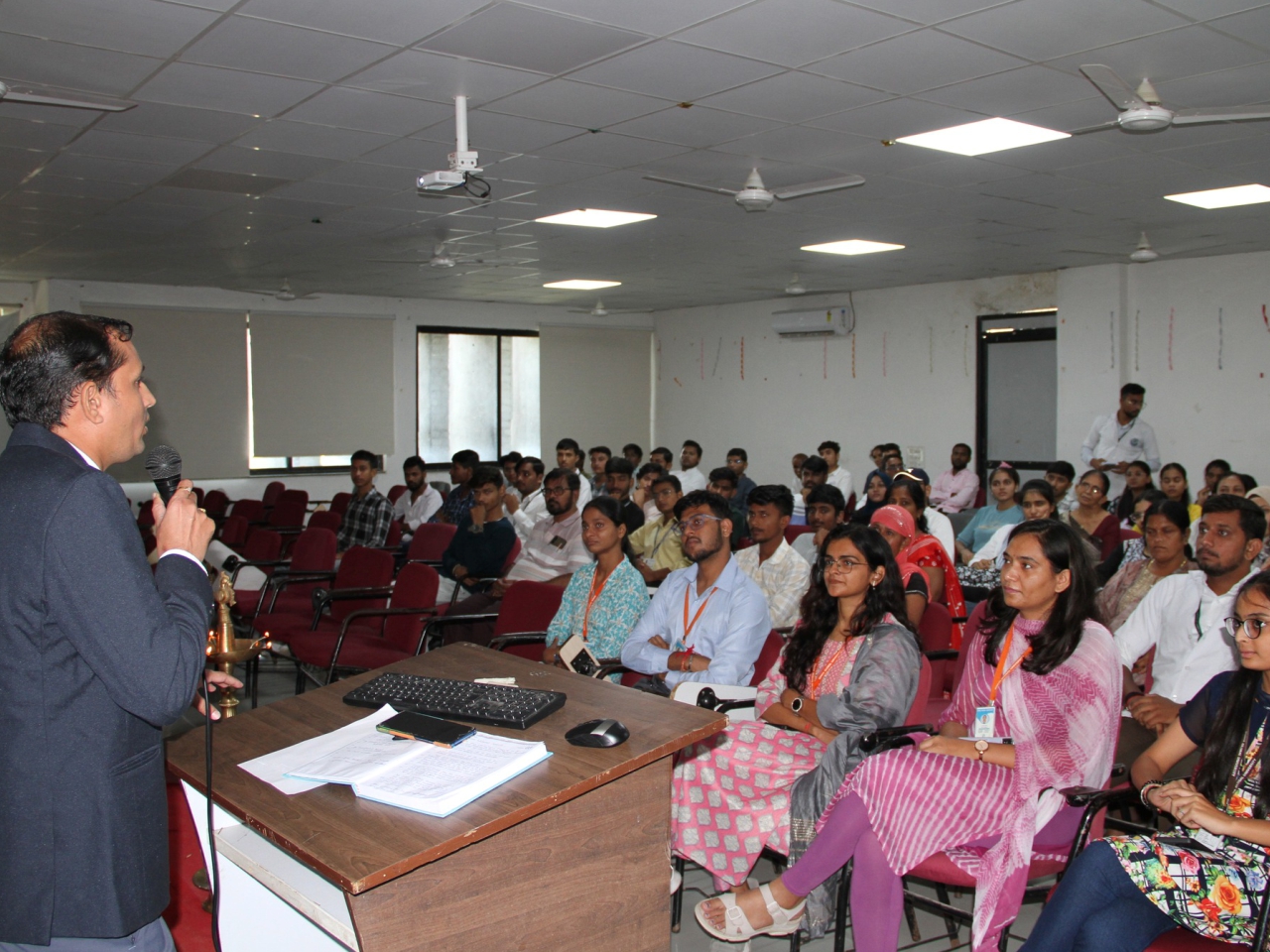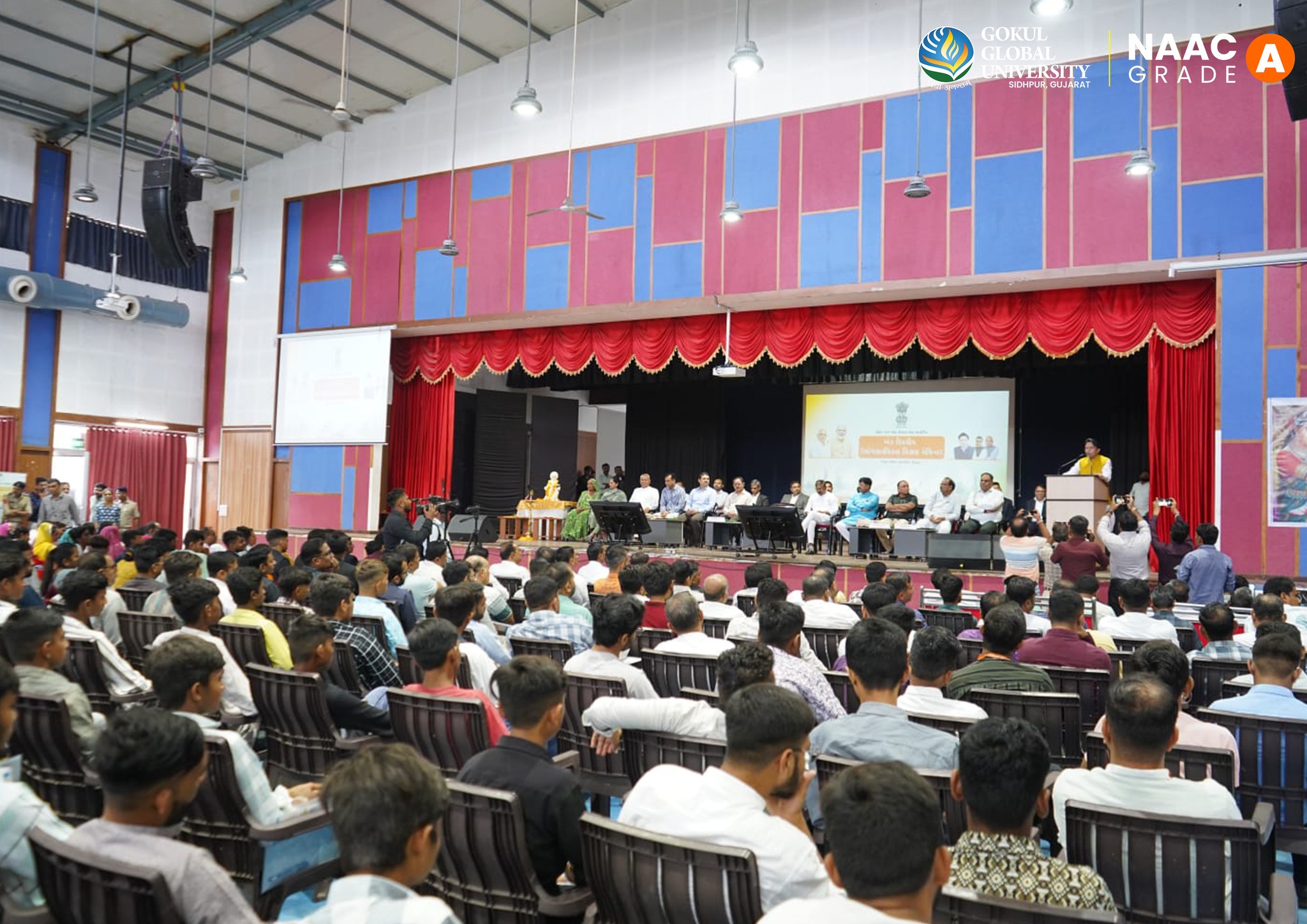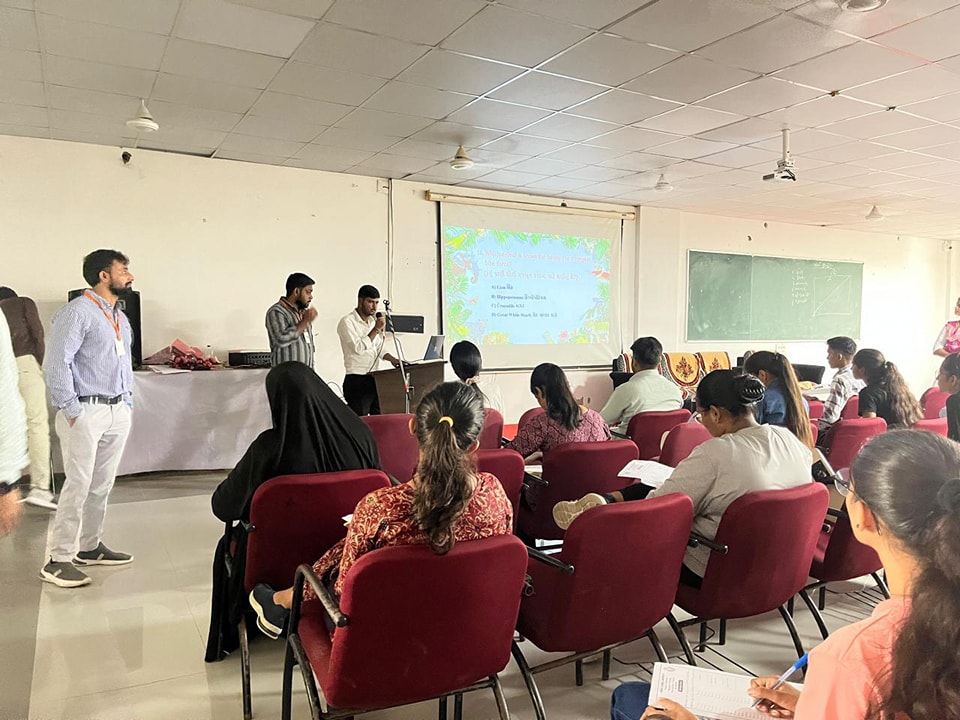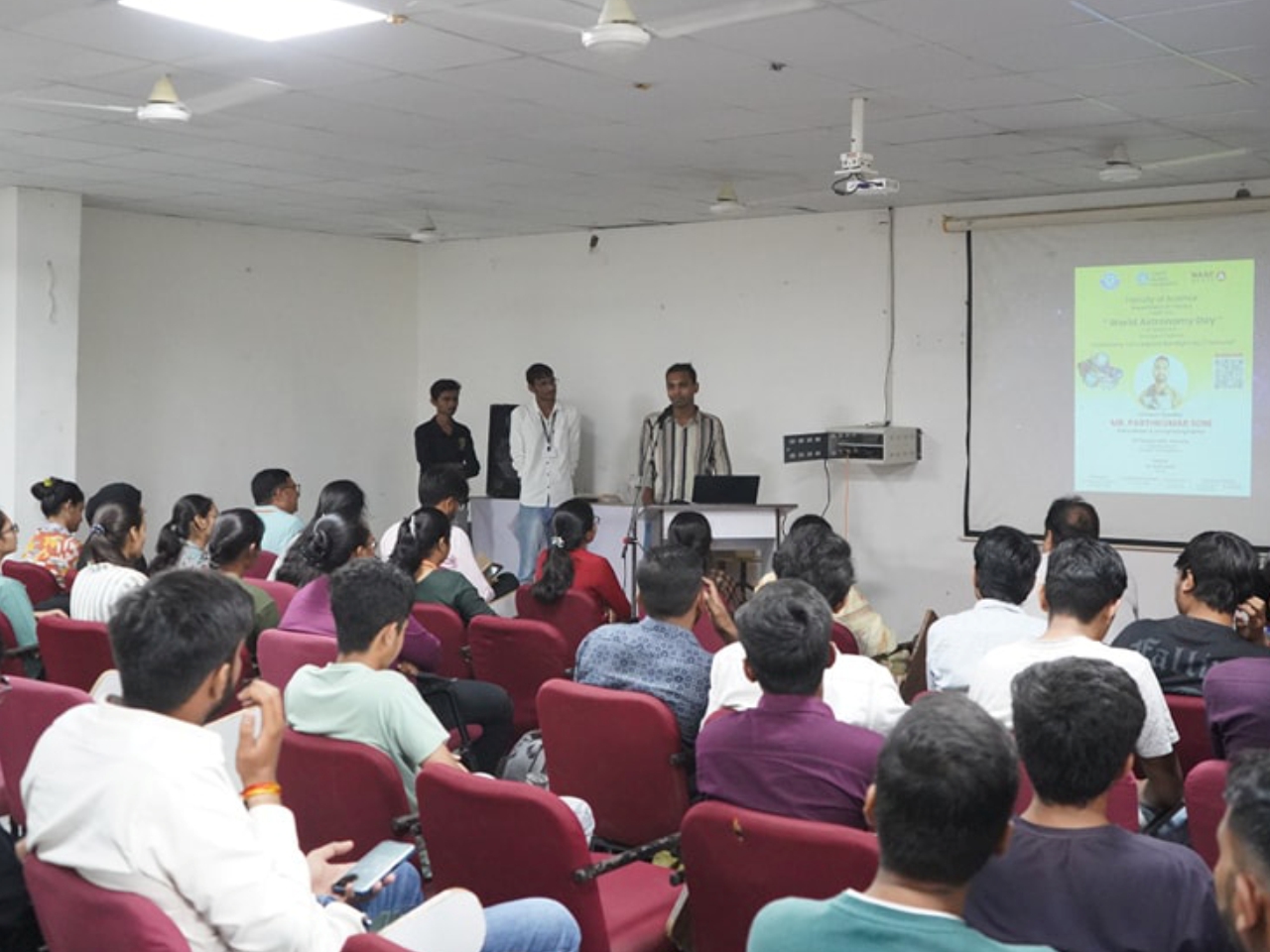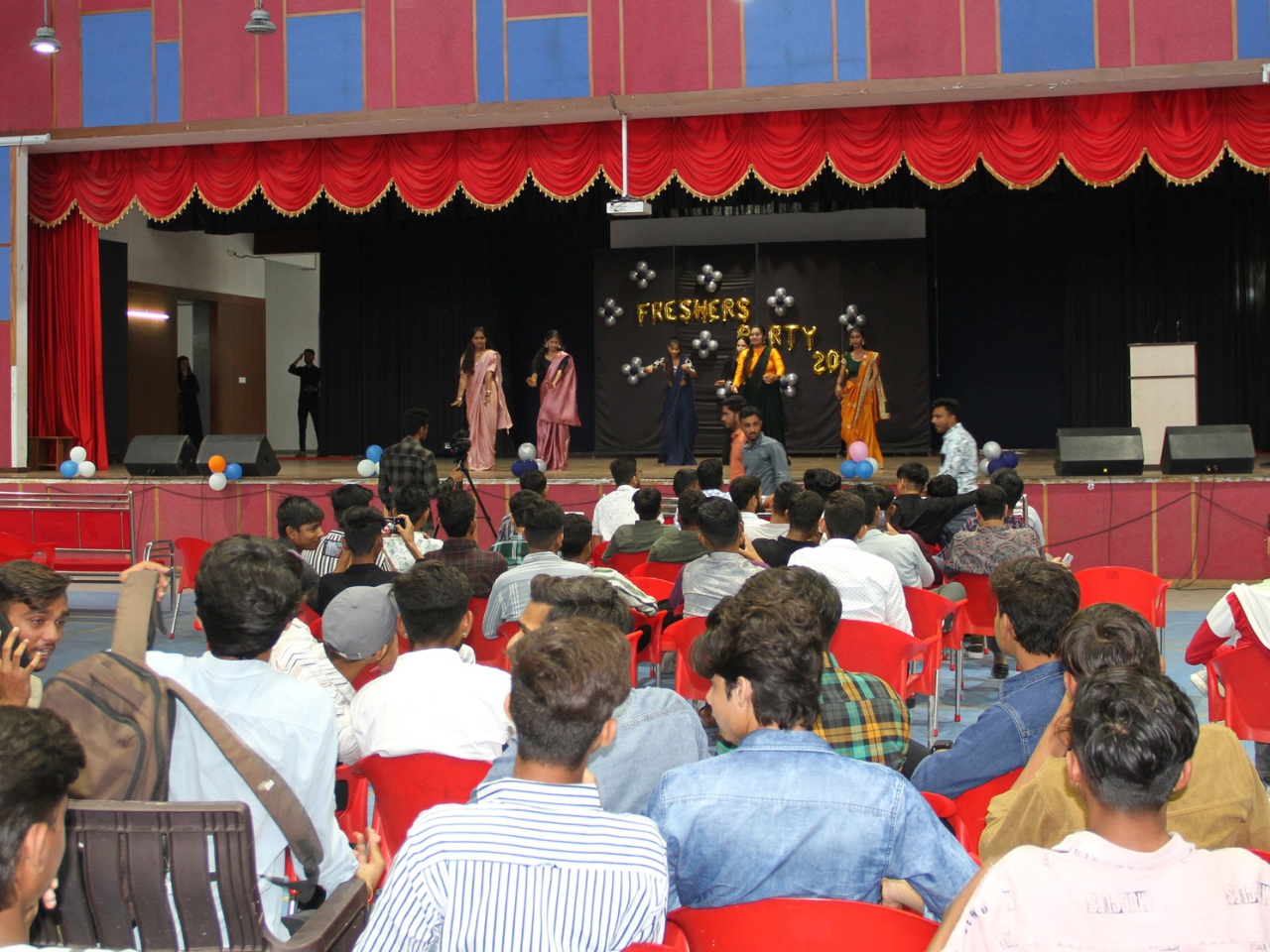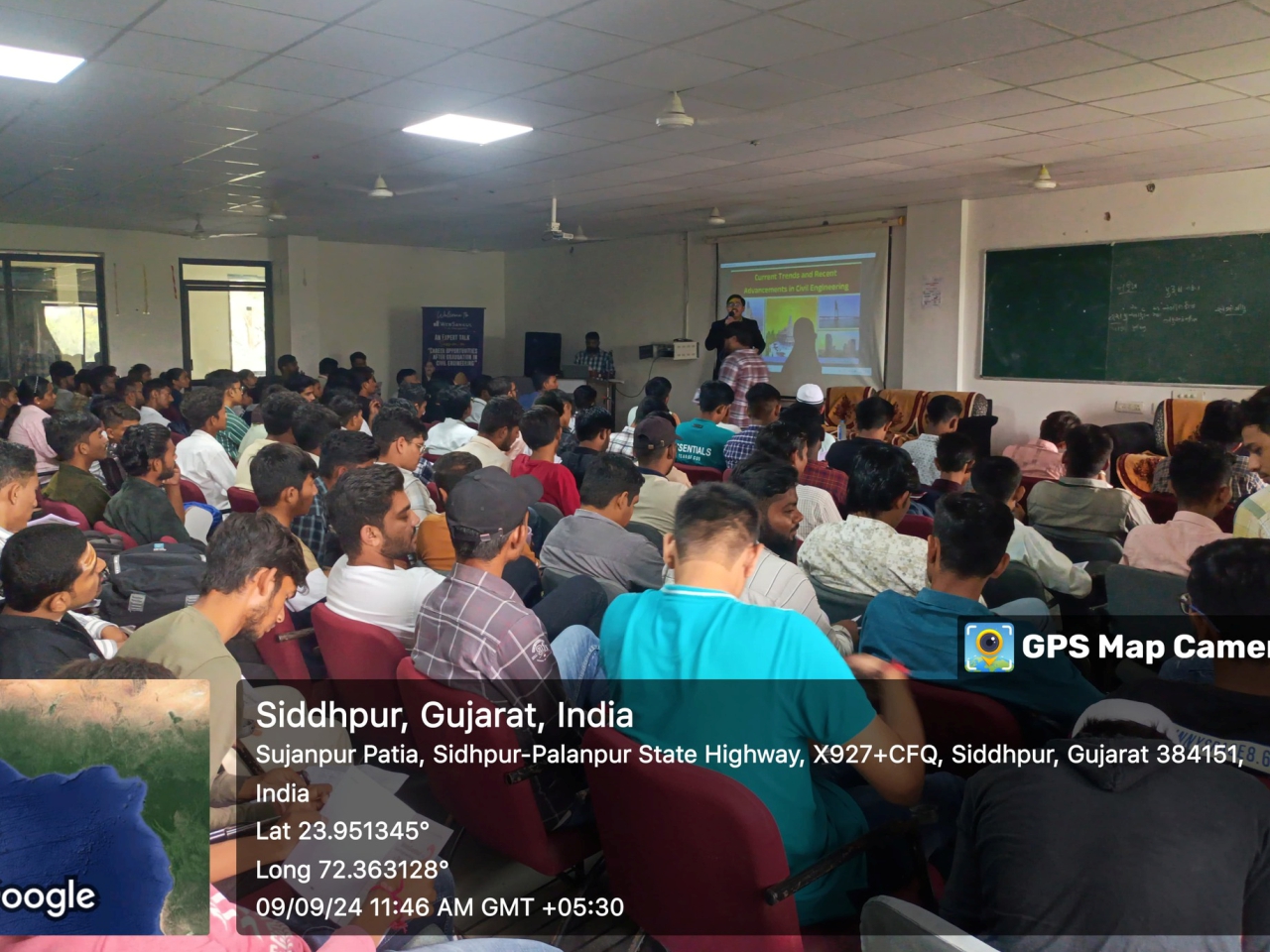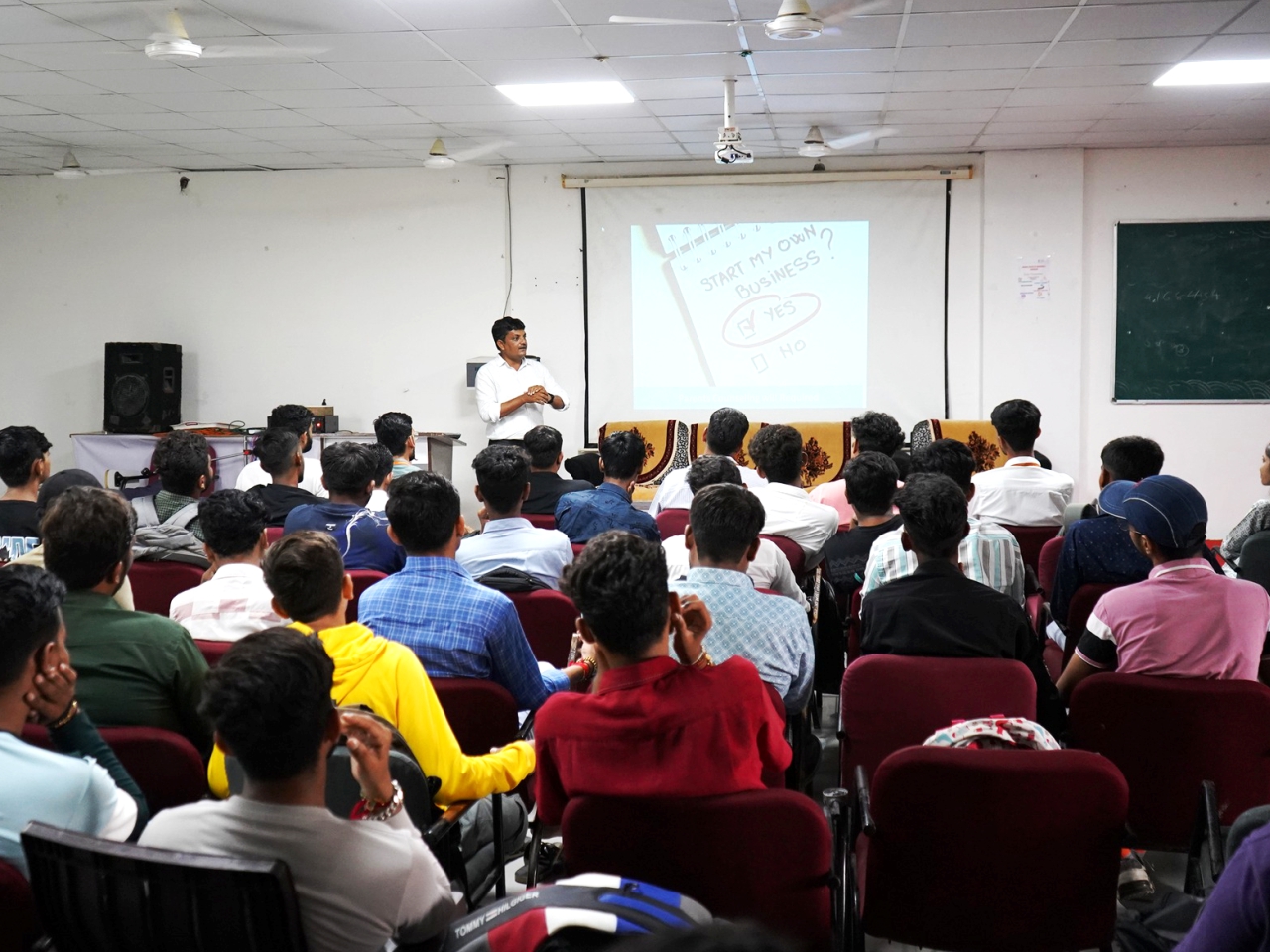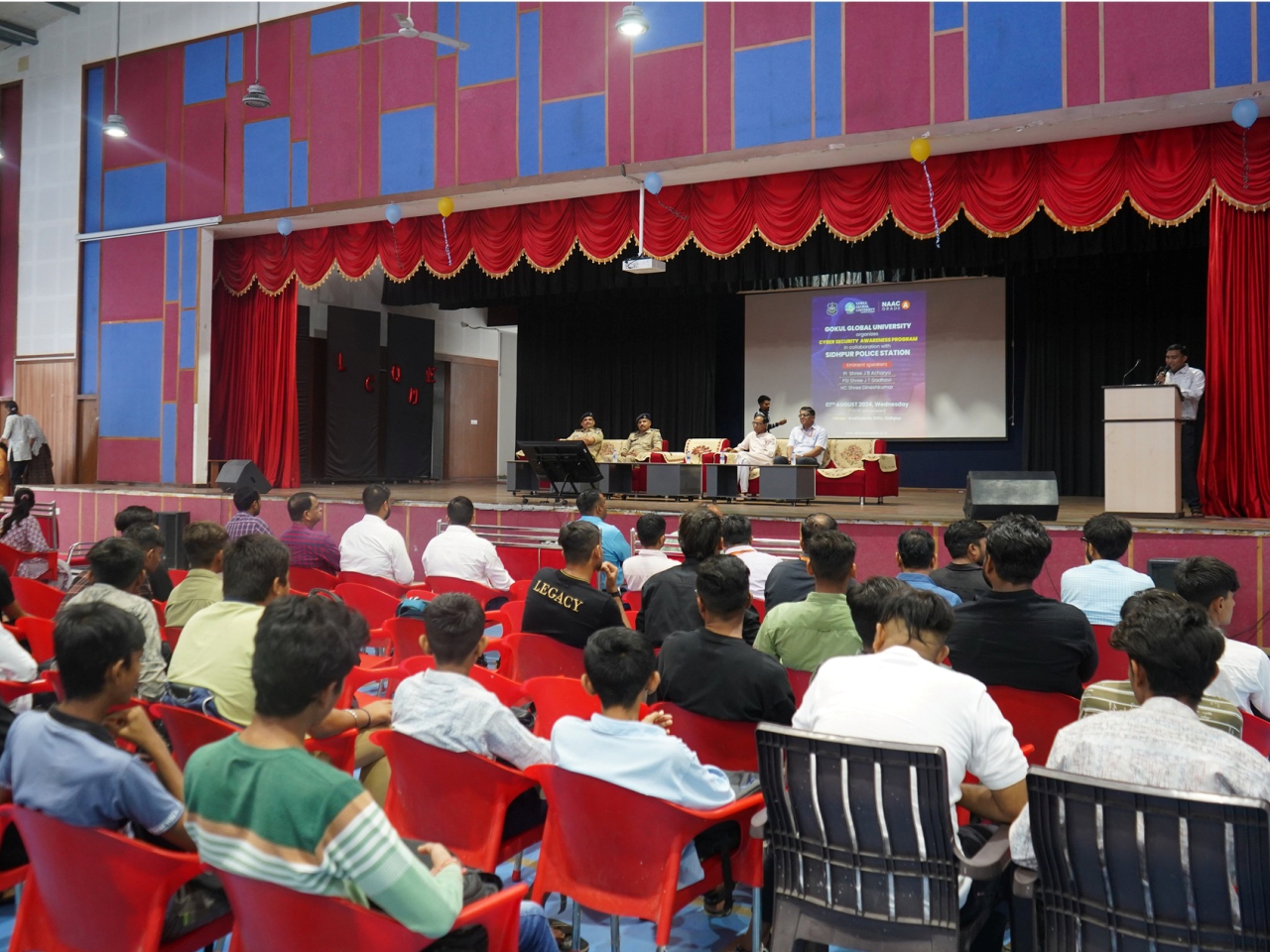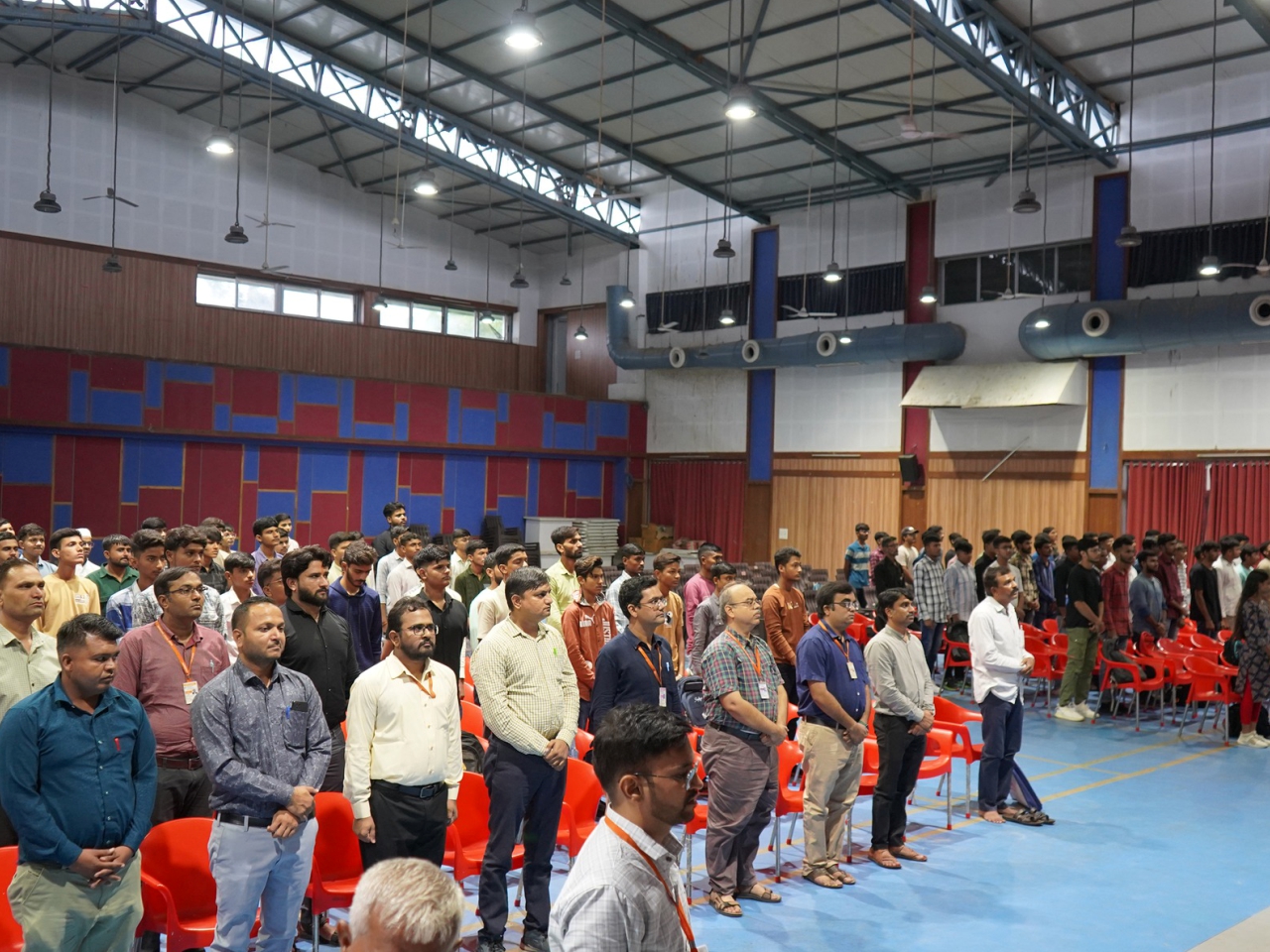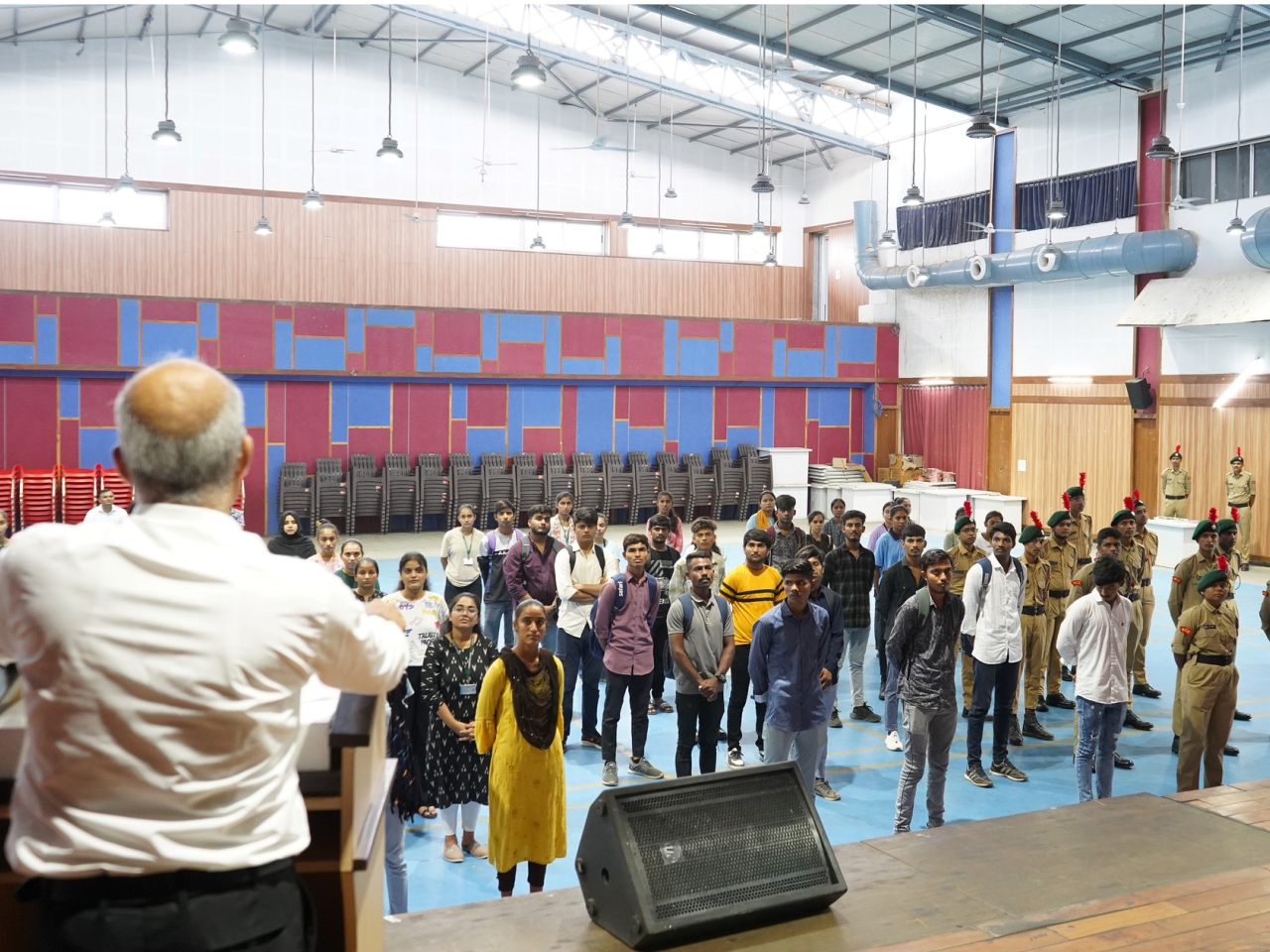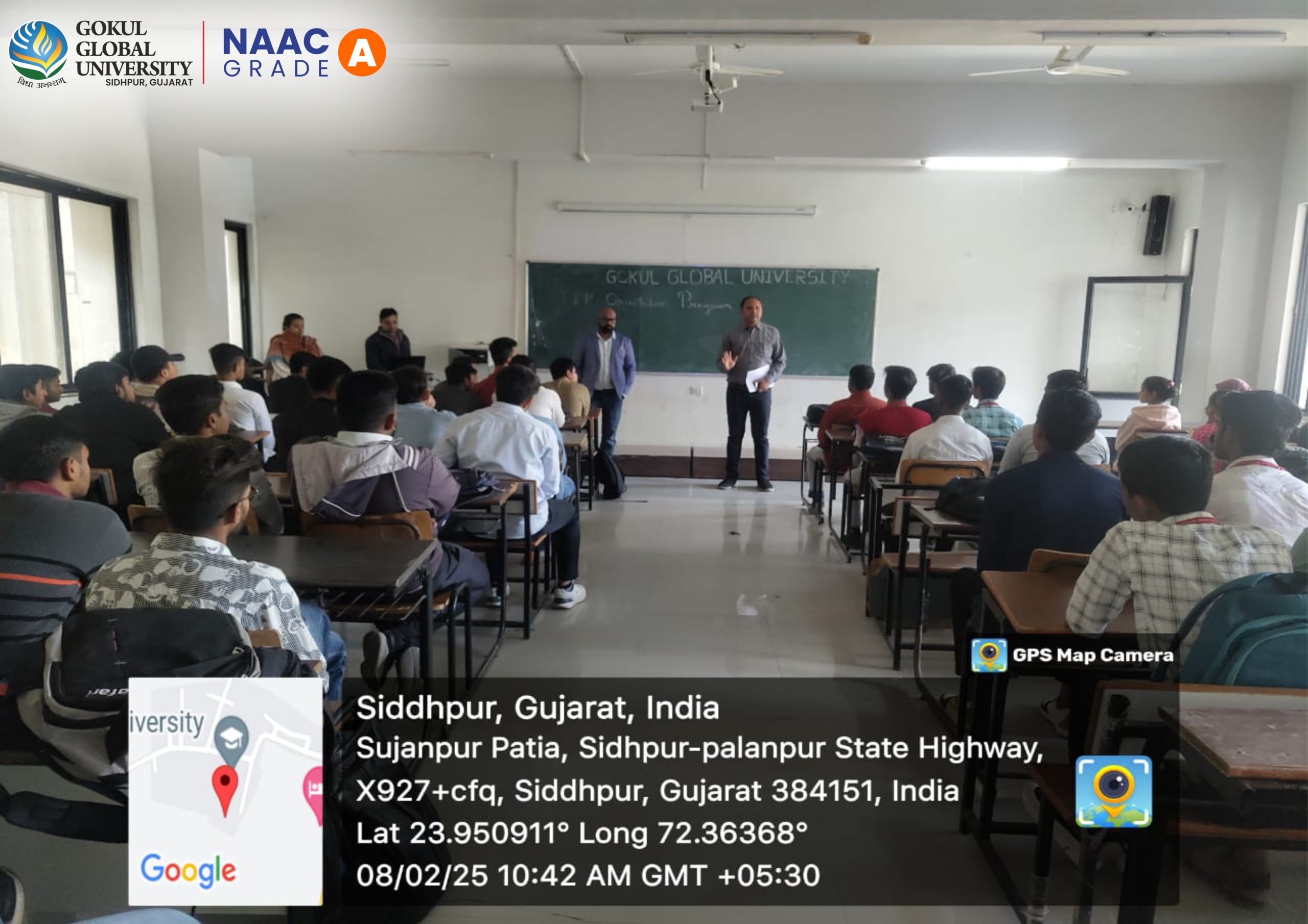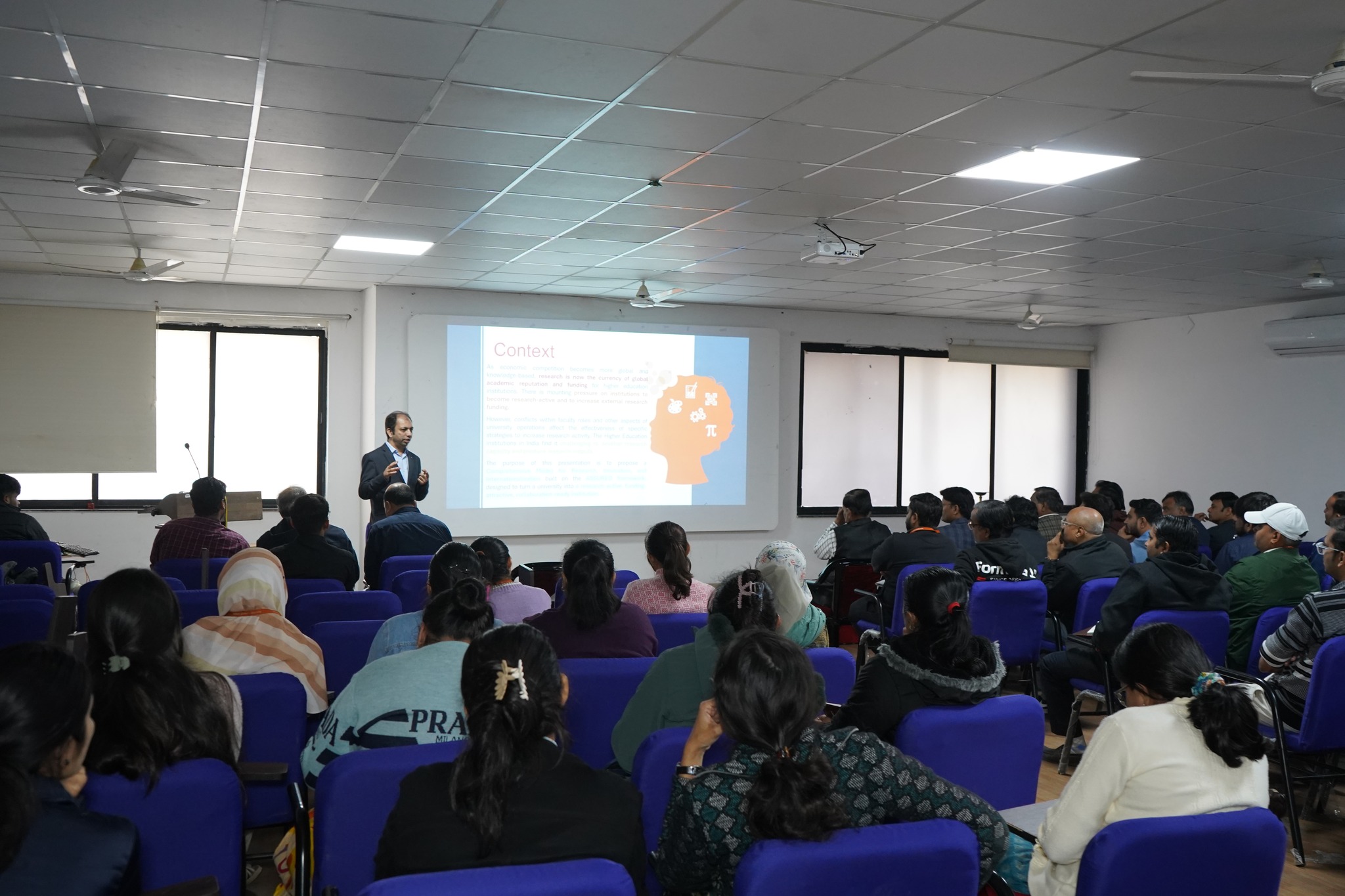Diploma - Electrical Engineering
About
Diploma Engineering Electrical
Electrical Engineering is a field of engineering that generally deals with the study and application of electricity, electronics and electromagnetism. Electrical engineering, an amalgamation of what is now called electrical, electronics and communication, instrumentation, computer engineering etc. is the largest of all engineering disciplines.Four well recognised branches of electrical engineering are power, communications, electronics and control systems. In a broader sense, this field covers a range of sub-disciplines including those that deal with power, optoelectronics, digital electronics, analogue electronics, artificial intelligence, control systems, electronics, signal processing and telecommunications. Overlapping of this field with computer has opened up the door to a career in almost any industry.

Why Study Diploma in Electrical
In-Demand Skills
Gain practical knowledge in auto mobile technology that are highly sought after in today’s job market

Career Opportunities
Roles in Electrical design, manufacturing, servicing, quality control, R&D, and automotive entrepreneurship.

Hands-On Training
Learn through real-world projects, labs, and industry-relevant technologies for immediate workplace readiness.

Duration: 3 years (Semester System)
Affiliation
A recognized constituent institution under Gokul Global University.

Eligibility Criteria
Candidate shall have passed 10th Examination with English,Maths and Science subjects with an aggregate of 35% in these 3 subjects from a recognized board.

Mode of Admission
As per the guidelines and procedure prescribed by ACPDC.

Curriculum
| # | Course Code | Course Name | Credits | Theory | Tutorial | Practical | Detail Syllabus |
|---|---|---|---|---|---|---|---|
| 1 | FED212001 | Mathematics-I | 3 | 2 | 1 | 0 |  |
| 2 | FED212002 | Communication Skill | 3 | 2 | 0 | 2 |  |
| 3 | FED212003 | Applied Physics-I | 4 | 3 | 0 | 2 |  |
| 4 | FED212004 | Applied Chemistry | 4 | 3 | 0 | 2 |  |
| 5 | FED212005 | Sports and Yoga | 1 | 0 | 0 | 2 |  |
| 6 | FED212006 | Induction Training | 0 | 0 | 0 | 2 |  |
| 7 | FED212207 | Engineering Graphics | 3 | 2 | 0 | 2 |  |
| 8 | FED212208 | Engineering Workshop | 2 | 0 | 0 | 4 |  |
| Total | 20 | 12 | 1 | 16 | |||
| 29 Hrs./Week | |||||||
| # | Course Code | Course Name | Credits | Theory | Tutorial | Practical | Detail Syllabus |
|---|---|---|---|---|---|---|---|
| 1 | FED222001 | Mathematics-II | 4 | 3 | 1 | 0 |  |
| 2 | FED222002 | Applied Physics-II | 4 | 3 | 0 | 2 |  |
| 3 | FED222103 | Engineering Mechanics | 4 | 3 | 0 | 2 |  |
| 4 | FED222104 | Environmental Science | 0 | 2 | 0 | 0 |  |
| 5 | FED222305 | Fundamentals of Electrical & Electronics Engineering | 4 | 3 | 0 | 2 |  |
| 6 | FED222406 | Introduction to IT Systems | 4 | 2 | 0 | 4 |  |
| Total | 20 | 16 | 1 | 10 | |||
| 27 Hrs./Week | |||||||
| # | Course Code | Course Name | Credits | Theory | Tutorial | Practical | Detail Syllabus |
|---|---|---|---|---|---|---|---|
| 1 | FED232301 | Electrical Power Generation System | 4 | 3 | 0 | 2 |  |
| 2 | FED232302 | Electrical Circuits | 5 | 3 | 1 | 2 |  |
| 3 | FED232303 | Electrical and Electronics Measurements | 4 | 3 | 0 | 2 |  |
| 4 | FED232304 | Electric Machines-I | 4 | 3 | 0 | 2 |  |
| 5 | FED232305 | Fundamentals of Electronics | 4 | 3 | 0 | 2 |  |
| 6 | FED232306 | Summer Internship-I | 2 | 0 | 0 | 0 |  |
| Total | 23 | 15 | 1 | 10 | |||
| 26 Hrs./Week | |||||||
| # | Course Code | Course Name | Credits | Theory | Tutorial | Practical | Detail Syllabus |
|---|---|---|---|---|---|---|---|
| 1 | FED242301 | Fundamentals of Power Electronics | 4 | 3 | 0 | 2 |  |
| 2 | FED242302 | Electrical Power Transmission and Distribution | 4 | 3 | 0 | 2 |  |
| 3 | FED242303 | Electrical Machines-II | 4 | 3 | 0 | 2 |  |
| 4 | FED242304 | Digital Electronics and Digital Instruments | 4 | 3 | 0 | 2 |  |
| 5 | FED242305 | Utilization of Electrical Energy (Elective-I) | 4 | 3 | 0 | 2 |  |
| 6 | FED242007 | Essence of Indian Knowledge and Tradition | 0 | 2 | 0 | 0 |  |
| Total | 20 | 17 | 0 | 10 | |||
| 27 Hrs./Week | |||||||
| # | Course Code | Course Name | Credits | Theory | Tutorial | Practical | Detail Syllabus |
|---|---|---|---|---|---|---|---|
| 1 | FED252301 | Microprocessor & Microcontroller Applications | 4 | 3 | 0 | 2 |  |
| 2 | FED252302 | Energy Conservation and Audit | 4 | 3 | 0 | 2 |  |
| 3 | FED252303 | Renewable Energy Technologies | 3 | 3 | 0 | 0 |  |
| 4 | FED252304 | Electric Traction (Elective-II) | 4 | 3 | 0 | 2 |  |
| 5 | FED252306 | Electrical Estimation and Contracting (Elective-III) | 4 | 3 | 0 | 2 |  |
| 6 | FED252308 | Project-I | 1 | 0 | 0 | 2 |  |
| 7 | FED252309 | Summer Internship-II | 3 | 0 | 0 | 0 |  |
| Total | 23 | 15 | 0 | 10 | |||
| 25 Hrs./Week | |||||||
| # | Course Code | Course Name | Type | Credits | Theory | Tutorial | Practical | Detail Syllabus |
|---|---|---|---|---|---|---|---|---|
| 1 | FED262301 | Electrification of Building & Complexes | Professional Core Courses | 4 | 3 | 0 | 2 |  |
| 2 | FED262302 | Electrical Commissioning and Testing | Professional Core Courses | 4 | 3 | 0 | 2 |  |
| 3 | FED262103 | Disaster Management | Mandatory Course | 3 | 3 | 0 | 0 |  |
| 4 | FED262304 | Switchgear and Protection (Elective-IV) | Professional Elective Courses | 4 | 3 | 0 | 2 |  |
| 5 | FED262006 | Entrepreneurship and Start-ups | Open Elective Courses | 3 | 3 | 0 | 0 |  |
| 6 | FED262007 | Indian Constitution | Mandatory Course | 0 | 2 | 0 | 0 |  |
| 7 | FED262306 | Project-II | Project | 2 | 0 | 0 | 4 |  |
| Total | 20 | 17 | 0 | 10 | ||||
| 27 Hrs./Week | ||||||||
Diploma Engineering in Electrical
₹ 44,100 Annually*
* Tuition Fees may vary depending on the Country/ State in which the candidate has passed their qualifying examination.
Laboratories















Activities
Event
26/11/2024
Event
18/10/2024
Event
21/10/2024
Event
15/10/2024
Achievement
17/10/2024
Achievement
16/10/2024
VISIT
15/10/2024
Event
10/10/2024
Seminar
05/10/2024
Seminar
4/10/2024
Seminar
03/10/2024
Freshers
03/10/2024
Seminar
03/10/2024
Village visit
02/10/2024
Seminar
28/09/2024
seminar
23/09/2024
Event Of Welcomimg
21/09/2024
Seminar
18/09/2024
seminar
10/09/2024
seminar
10/09/2024
seminar
10/09/2024
celebration
07/09/204
Celebration
05/09/2024
Event
02/09/2024
Event
26/08/2024
Expert lectures
24/08/2024
Start-up Skill India
23/08/2024
Birthday
17/08/2024
"VIKSIT BHARAT 2047"
15/08/2024
Campaign
14/08/2024
Event
14/08/2024
Event
10/08/2024
Event
07/08/2024
Event
05/08/2024
Board Meeting
02/08/2024
Event
31/07/2024
Event
27/07/2024
Event
27/07/2024
Event
05/07/2024
Achievement
05/02/2025
Seminar
08/02/2025
Achievement
10/03/2025
Event
17/03/2025
Event
08/03/2025
Seminar
08/03/2025
Visit
07/03/2025
Event
23/02/2025
Event
18/05/2025
Event
26/01/2026
Seminar
10/01/2026
Seminar
12/01/2026
Achievement
10/01/2026
Admissions Open for
A.Y. 2026-27
A university shapes futures. At Gokul Global University, we empower students through skill-based learning for lasting career success








